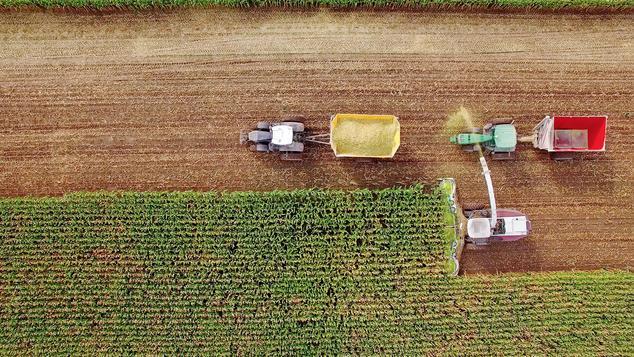
As COVID-19 unrelentingly spread across the U.S. this summer it has become abundantly clear that our agricultural system – from farm to fork – can't handle a pandemic. The novel corona-virus exposed huge cracks in food processing and delivery that must be addressed by Congress.
Food shortages. Food that did not reach consumers due to an overwhelmed transportation system. Panic and hoarding at the retail level. Massive milk, egg, and vegetable food waste. The inability to reroute food destined for closed restaurants into the consumer supply chain. The headaches were endless.
No one along the food distribution system was spared from COVID-19. Farmers (especially those who produce perishable products), meat processors/packers, and restaurants all were impacted.
Down on the farm producers of onions, milk, eggs, and pork found themselves with no place to sell their wares:
In April the Dairy Farmers of America estimated dairy farmers were daily dumping up to 3.7 million gallons of milk onto fields. While the dumping of milk has actually been going on in the U.S for decades due to overproduction and lower consumer consumption, COVID 19 created bottlenecks for the milk supply. The government mandated closure of schools, coffee shops, ice cream stands shrunk milk demand even further.
Onions were also left to rot or composted by farmers who lost restaurant sales. Restaurants account for roughly 40 percent of all onion sales with a specialized market for large mild onions used to make rings. Meanwhile, egg producers were smashing roughly three-quarters of a million eggs every week. The tightening egg supply and surge in demand at retail pushed the cost of eggs over 3 dollars a dozen in March.
COVID-19 hit beef and poultry processing plants especially hard. See here, here, and here. Big Meat and the federal government responded too slowly to the rapid spread of the corona-virus. The meat processing slowdown forced some poultry farmers to euthanize their birds. Two million in Delaware and Maryland. One and a half million in North Carolina. Two hundred thousand in Pennsylvania.
For pork producers COVID 19 meat packing slowdowns left them cramming piglets into already full barns, turning them out into open fields, or in desperate measure facing the difficult decision to euthanize.
But it's even more complicated than simple supply/demand economics. Here in the good ol U-S-of-A producers more often than not send their agricultural products specifically to either the food-service chain (places like restaurants, schools, hospitals, hotels, stadiums, and movie theaters) or the grocery retail chain.
Products are specifically produced to meet the needs of each supply chain. Food designed for the food-service chain is often packaged in super-sized bulk. For example, lettuce is often sold in bulk shipping crates to the food-service chain, while individualized wrapped packing is often needed for consumer sale (pre-packaged mixes account for about 25 percent of all iceberg lettuce sold at retail).
Another bottleneck concerns FDA mandated labeling of products heading to the grocery vs. the food service industry. The FDA did waive some of its labeling requirements in March due to COVID-19 that gave restaurants the ability to sell some of their unprepared food to the public. But local communities, including Boston and Los Angeles, irrationally banned the process.
And then there are issues surrounding transportation. Demand at the nation's food banks soared as COVID-19 left people without employment. Food waste could have been lessened had the federal government taken a more aggressive approach to buy and deliver surplus fruits and vegetables to food banks.
In a nutshell, COVID-19 has wreaked havoc on food distribution chains. Lawmakers need to hold hearings on the impact of COVID-19 on food waste, especially as it relates to supply issues in food-service sector, and develop regulations to more nimbly handle unexpected food supply bottlenecks. Americans deserve no less.
About Dave Dickey
 Dickey spent nearly 30 years at University of Illinois at Urbana-Champaign’s NPR member station WILL-AM 580 where he won a dozen Associated Press awards for his reporting. For 13 years, he directed Illinois Public Media’s agriculture programming. His weekly column for the Midwest Center covers agriculture and related issues including politics, government, environment and labor. His opinions are his own and do not reflect the Midwest Center for Investigative Reporting. Email him at dave.dickey@investigatemidwest.org.
Dickey spent nearly 30 years at University of Illinois at Urbana-Champaign’s NPR member station WILL-AM 580 where he won a dozen Associated Press awards for his reporting. For 13 years, he directed Illinois Public Media’s agriculture programming. His weekly column for the Midwest Center covers agriculture and related issues including politics, government, environment and labor. His opinions are his own and do not reflect the Midwest Center for Investigative Reporting. Email him at dave.dickey@investigatemidwest.org.
